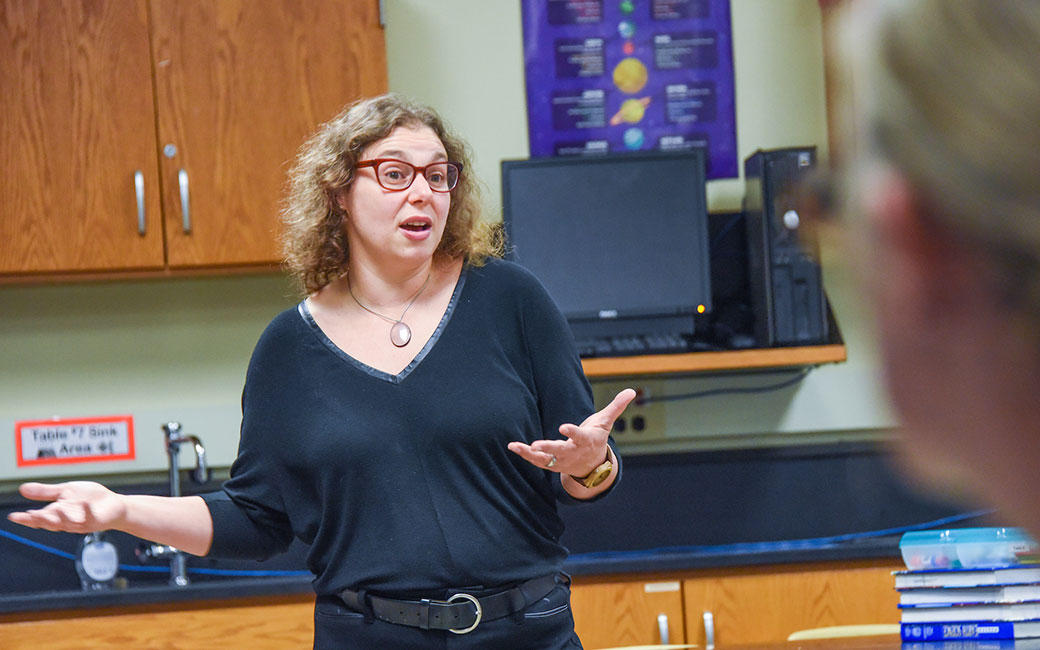Education professor studies how teachers address social justice in classrooms
Research examined how educators talked with students about the 2015 Baltimore Uprising, the death of Freddie Gray
By Rebecca Kirkman on June 6, 2020

A recent study co-authored by Towson University associate professor Jessica Shiller looks at how classroom teachers address social justice issues with students.
With Stephanie Flores-Koulish, director of the Curriculum and Instruction for Social Justice Program at Loyola University Maryland, Shiller interviewed a diverse group of eight elementary, middle and high school teachers after the 2015 death of Freddie Gray, an unarmed Black man who died in police custody.
“I was very hopeful that teachers would follow up on these conversations in the classroom, but I knew they were getting very little guidance from the school district at that time,” says Shiller, who teaches in the College of Education’s Department of Instructional Leadership and Professional Development.
In their research, Shiller and Flores-Koulish asked the teachers how and why they responded to current events in the classroom. They also collected curriculum samples of how the educators used the public school classroom as a space of critical care, social justice, cultural relevance and antiracism to contextualize current events in their city.
The resulting study, “Critical Classrooms Matter: Baltimore Teachers’ Pedagogical Response After the Death of Freddie Gray,” was published in the journal Education and Urban Society in November 2019. It was recently highlighted in the Washington Post.
In the publication, Shiller and Flores-Koulish argue that when major social or political events happen, young people have few outlets to discuss, process and understand the implications and that public schools provide necessary spaces of civic engagement.
“This kind of teaching really opens up the space for kids to share different points of view but also to connect with each other around an issue that they’re not just passionate about but an issue that is really personally relevant,” Shiller says.
As teachers across the country are facing similar conversations today, with the added challenge of virtual instruction, Shiller’s research has become a valuable resource. “That’s what you hope when you do this kind of work—that it doesn’t just sit in a journal, that people are picking it up and using it.”
Shiller adds, “Our article provided ideas about the ways teachers can approach these topics. The online environment makes it more challenging, but we urge people to do it anyway. To not be afraid to have controversial discussions with kids who need this so badly.”
This story is one of several related to President Kim Schatzel’s priorities for Towson University: TU Matters to Maryland.